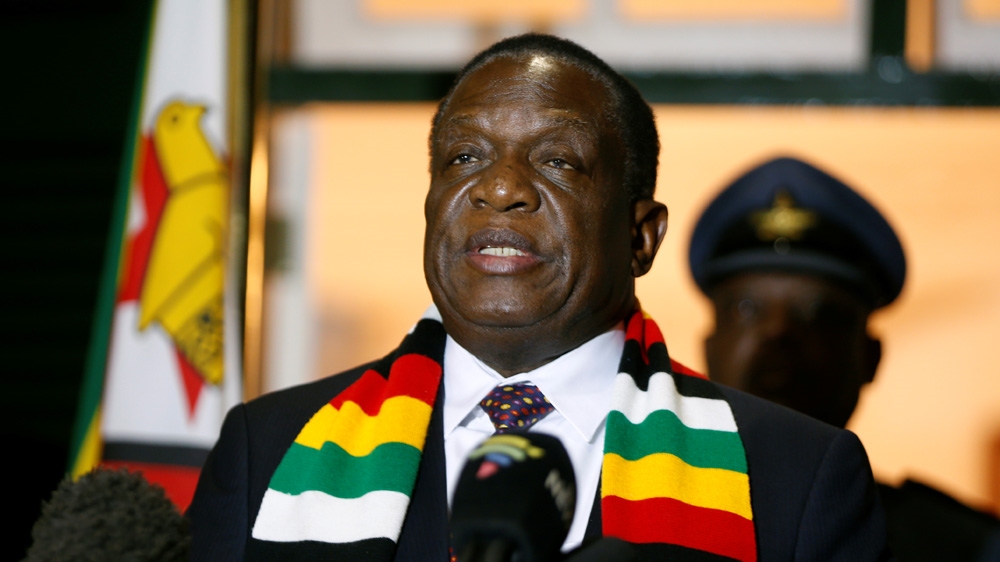Speculative tendencies to blame for EXR instability, says the President
HARARE – President Emmerson Mnangagwa on Wednesday highlighted the strides Zimbabwe is making in economic recovery and the measures being implemented to stabilise the national currency amidst ongoing challenges.
In his State of the Nation Address at the official opening of the second session of the Tenth Parliament, the President noted that the banking sector remains robust, stating, “Our country’s banking sector is on a sound footing, with sufficient capital and liquidity buffers. Profitability, asset quality, and liquidity metrics have also remained stable.”
However, he expressed concern over the resurgence of parallel market activities, which he attributed to speculative tendencies. “Corrective measures are being instituted to protect all Zimbabweans from economic disruptions,” he assured.
He said that the Reserve Bank has allowed for greater flexibility under the willing-buyer willing-seller arrangement to deepen the foreign exchange market, which is expected to promote effective price discovery and encourage participation in the market. The local currency has depreciated 3.5% since last Friday’s devaluation while alternative market rates are being quoted at 38-40.
President Mnangagwa said government is committed to backing the currency by setting aside 50% of royalties for building reserves. This initiative aims to enhance the stability of the Zimbabwean dollar, which has faced pressures in recent years.
The President also reported a positive trend in foreign currency inflows, revealing that exports have increased from US$7 billion in 2023 to US$8 billion in 2024. “The increased flexibility on the foreign exchange market is expected to further promote effective price discovery and encourage holders of foreign exchange to participate in the willing-buyer willing-seller market.”
As part of the government’s broader economic strategy, President Mnangagwa emphasised the importance of infrastructure development, stating, “Going into the future, infrastructure development will be a critical pillar to our economic growth, revitalization, and creation of jobs.”
The address noted several new bills that are to be considered in the current session of Parliament, which also includes the Bills which were meant to go through in the last session.
Occupational Safety and Health Bill – To align with International Conventions
State Service Pensions Bill – Establishing the State Service Pensions Fund.
Public Service Act Amendment – To align with the Constitution.
Rural Electrification Fund Act Amendment – To sync with current economic realities.
Public Entities Corporate Governance Act Amendment – To align with present realities.
Pipelines Act Amendment – To be in sync with economic growth.
Legal Practitioners (Amendment) Bill – To harmonize the registration process for foreign legal practitioners. (
Zimbabwe School Examinations Council Bill – To enhance efficiency and governance of the ZIMSEC Board.
Teaching Professions Council Bill – To regulate conditions of service and produce a code of conduct for teachers.
Protection of Whistle Blowers Bill – To enhance the fight against corruption.
Electronic Transactions and Electronic Commerce Bill – To promote legal certainty and affordability for electronic transactions.
Standards Bill – To establish standards in various sectors.
Legal Metrology Bill – To regulate measurements and measuring instruments.
Broadcasting Services Amendment Bill – To modernize broadcasting regulations.
Media Practitioners Bill – To regulate the media profession.
Several amendments to existing laws will include:
Public Service Act Amendment – To align the Act with the Constitution.
Rural Electrification Fund Act Amendment – To ensure it is in sync with current economic realities.
Public Entities Corporate Governance Act Amendment – To align with present realities associated with economic growth.
Pipelines Act Amendment – To be updated in accordance with the growth of the economy.
Legal Practitioners (Amendment) Bill – To harmonize the administrative functions of the Judiciary and the Executive in the registration process for foreign legal practitioners.
Medical Services Amendment – To update and improve medical service regulations.
Insurance and Pensions Amendment – To modernize the insurance and pensions framework.
These amendments aim to enhance governance, align with constitutional requirements, and adapt to the evolving economic landscape.
During the Second Session of the Tenth Parliament, several protocols are expected to be tabled for ratification. These include:
Protocol Amending the Trade-Related Aspects of Intellectual Property Rights (TRIPS) Amendment Protocol of 2005 – This protocol aims to update and enhance the existing framework governing intellectual property rights in relation to trade.
Lisbon Treaty to the Geneva Act – This treaty relates to the protection of geographical indications and aims to enhance international cooperation in this area.
Zimbabwe-Russia Cooperation Agreement – This agreement is intended to strengthen bilateral relations and cooperation between Zimbabwe and Russia across various sectors.-finx









